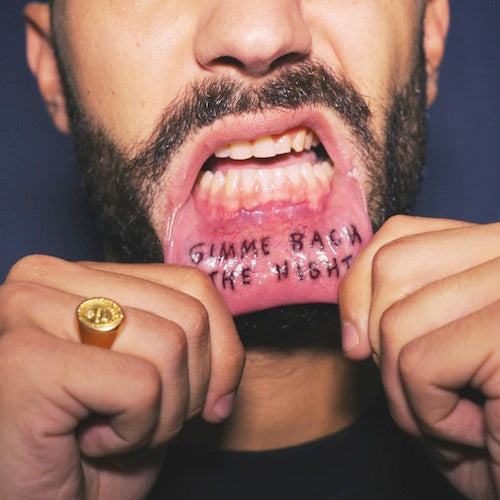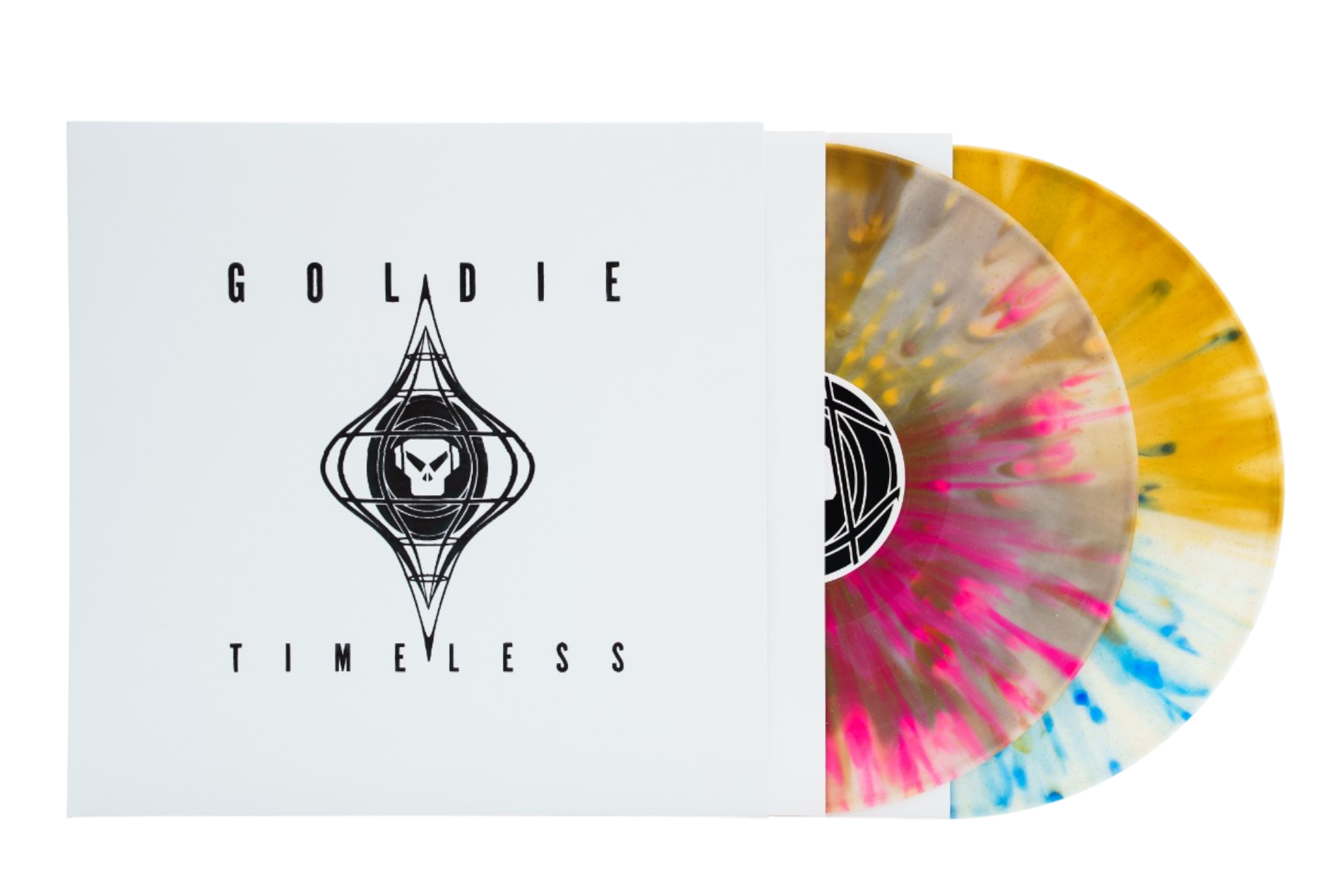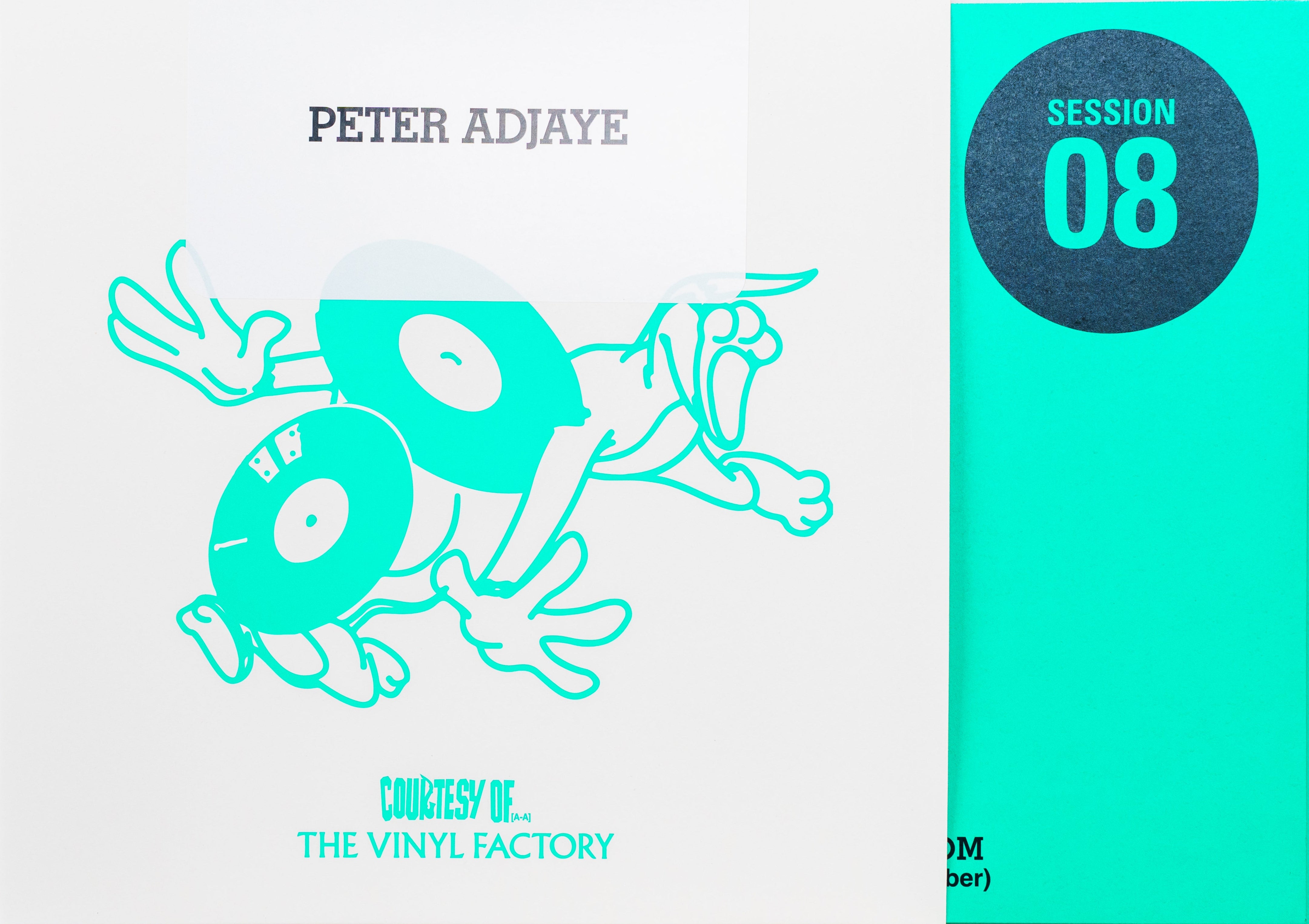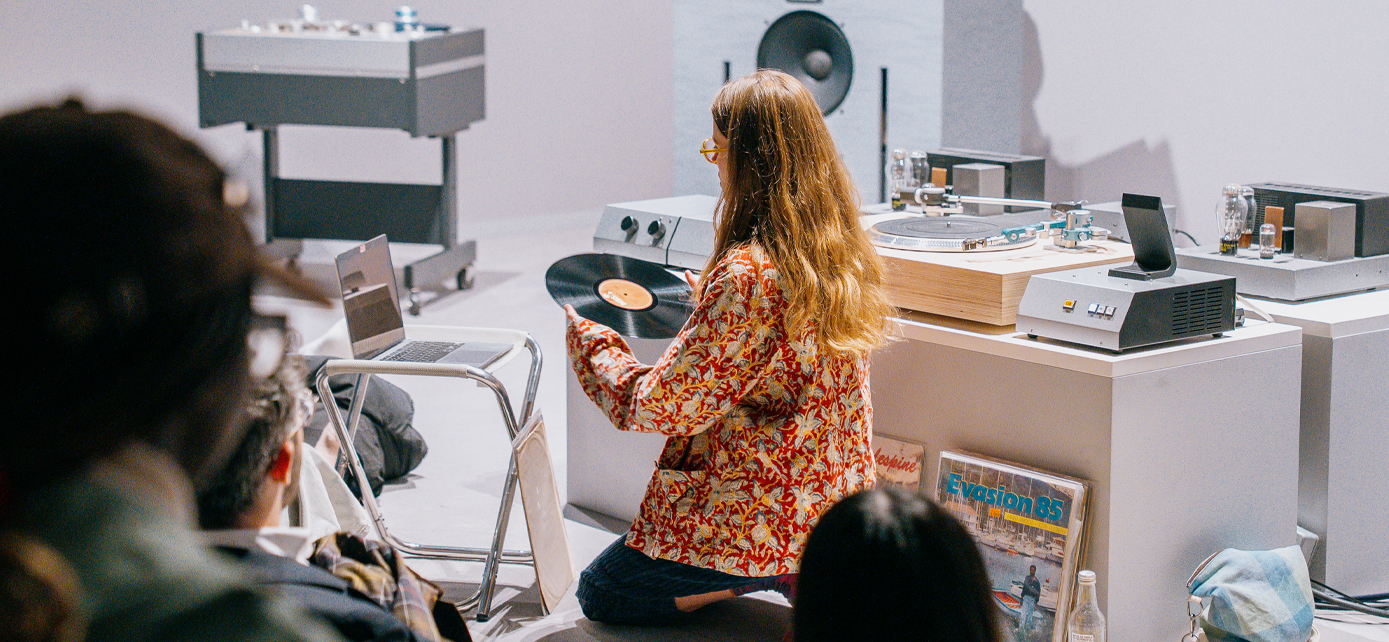
A history of Disque Debs with Poly-Ritmo
A journey through " the longest running and most prolific record label from Guadalupe".
Founded by Henri Debs in the late 1950s, Disque Debs released over 500 records and became instrumental in bringing music from Guadeloupe and Martinique to global audiences. At 180 Studios' Listening Room on Devon Turnbull's custom sound system, curator, DJ and radio host Poly-Ritmo took us through a curated listening session exploring the label’s defining sounds, from Biguine and Gwoka to Cadence and Zouk, alongside telling the story of the label and Henry Debs' essential work.
I'm Polly, I'm a DJ, and I'm hounored to have been invited to be part of this listening series here at 180 on this really special sound system made by Devon Turnbull.
We're going to be listening to music from Disque Debs, the longest-running and most prolific record label from Guadeloupe, which released over 500 records. Disque Debs was set up by Henri Debs in the late '50s and ran to the early 2000s, and it was one of the first labels to distribute music from the Antilles to France and also played a pivotal role in bringing music from Guadeloupe and Martinique to an international audience.
I'll be selecting releases from the '70s, '80s, and I think there's just one release from the early '90s. The genres we're going to be listening to are Gwoka, Gwoka Moderne, Zouk, Cadence, and Biguine.
Just to give a little brief summary of Guadeloupe: it's a series of islands in the Caribbean consisting of six inhabited islands, as well as many uninhabited islands, and it has a population of around 400,000 people. Guadeloupe is still part of France, and because of that, French is the official language spoken but Guadeloupean Creole is the most widely spoken language. It's primarily based on French, but also includes elements from West and Central African languages, indigenous Carib languages, and some influences from English and other European languages too.
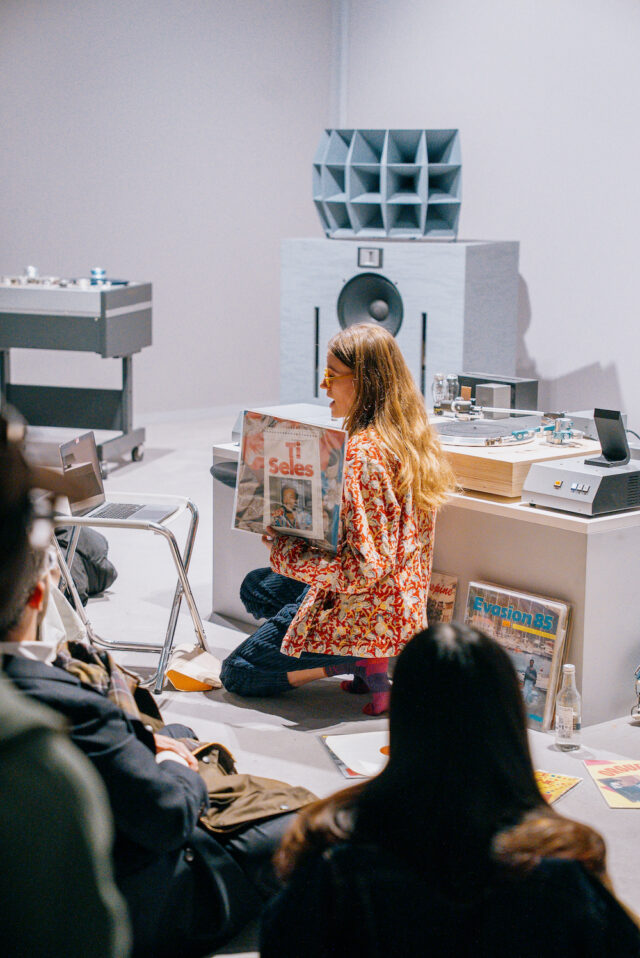
First up, we're going to listen to a Biguine track. Biguine originated in the 19th century in Martinique and Guadeloupe, and blends Bel-Air, which is a local rhythm, and French Quadrille music. It was initially performed at outdoor dances and festivals.
This one is called “Ti Jenes an Nou” by Bienveillance Abymienne.
That one was by Bienveillance Abymienne. Listening to it, you can really hear the influence from Colombia, and especially the Colombian-Caribbean sound.
Next up, we're going to hear another Biguine track. This one is by José Privat, from an album called Orgue Biguine, “orgue” means organ. You can see him playing the Hammond on the cover. This is a jazzy, funky Biguine very heavily influenced by American music.
Next, we're gonna listen to some Gwoka. Gwoka is a traditional style of music and dance from Guadeloupe, structured around a call-and-response pattern and polyrhythmic drumming. Its roots go back to the arrival of enslaved West and Central African people in the 17th and 18th centuries, merging with indigenous Caribbean and French influences to create this unique sound.
Often, percussion was forbidden on plantations, but Gwoka survived through hand claps and vocal tones imitating drums. It became a symbol of resistance and remains central to Guadeloupean identity today.
This next track is “Sé Roulé Moin Ka Roulé” by Anzala.
The call and response of the drums in that track is amazing.
Next, a stripped-back Gwoka Moderne cut — Gwoka with jazz, funk, and electronic influences layered in. This one is “Alalouya” by Ti Céleste from 1982.
I'm sure some of you love Zouk. I definitely do. I think it's one of the best genres ever.
Zouk originated in the late ’70s, blending Biguine, Cadence, Compas, and Calypso with funk, soul, disco, and Latin grooves. By the ’80s, thanks to Kassav, Zouk became an international sensation.
We’re starting with “Pi Ou Li” by Ramon Pyrmée.
Then we have “Van La Ka Vante” by Evasion 85, from their only release. It's a pure Zouk gem.
Next up is “You Have Lost the Battle” by Exile One.
Exile One were prolific with three albums in 1975, three in 1976, and two in 1978.
Here’s another from the same year: “Massa” by Exile One.
From the Strut Records compilation Cadence Revolution (1973–1981), here’s “Lagé Yo” by Koumbit, my favourite version of this beautiful track.
Some of you might have noticed that there are a lot of men but I really wanted to play at least one female musician tonight.
Here’s “Si On Jou” by Mariz, from her self-titled album, featured on Disque Debs’s Music Malady: Zouk, Boogie & Gwoka Moderne (1982–1993).
Next up is the big boss himself. Henri Debs started Disque Debs in the back of his clothes shop in Pointe-à-Pitre with a two-track tape machine. He produced, mixed, recorded, photographed, and even sang on many of these records, constantly pushing to make his studio one of the most advanced in the Caribbean.
We’ll now hear “Quand on Maman Ni on Fi a Maye” by Henri Debs and Max Severin.
There weren’t any music schools or conservatories in Martinique and Guadeloupe. People learned by ear, and sometimes there were some mistakes. For a lot of the international music, if they didn’t understand the lyrics, the bands invented phrases that sounded similar. One of the popular merengues in the ’50s was called “A Ti Nama Te Quiero” meaning “I love you,” but the lyrics got changed to “En Pajama Levé” meaning “lift up your pyjamas.” All the different styles influenced each other, and everyone added their own touch and covered songs from other islands. It was a kind of cross-Caribbean fertilisation.
Next up, we're gonna hear a Zouk tune from Banana Zook. Unfortunately, I could find very little information about this guy. It's their only release, and this came out in 1987. I'm gonna play a track called “La Vi Bel”.
So, as you can hear on that one, there are two female backing vocalists: Tanya St. Val and Jane Foston. Tanya St. Val also released her own music as well as being a lead vocalist. Unfortunately, not on Disque Debs, so I couldn't include it today.
On this tune, actually, the same backing vocalist, Tanya St. Val, sings. This is a band called Experience 7. They released 21 albums in total and play a mixture of Zouk and Cadence. This is a Zouk track called “Bel Toubonman".
Okay, we have time for one more. This last one is from a group called Les Maxel’s and they released 11 albums. They're a big band, as you can see, and they've got a real big band sound, and you can hear a lot of Latin influences in their style of playing.
The track that we're going to hear is called “Catalog" by Les Maxel’s.
Find out more about the Devon Turnbull Listening Room at 180 Studios here.
This conversation has been edited for clarity.



